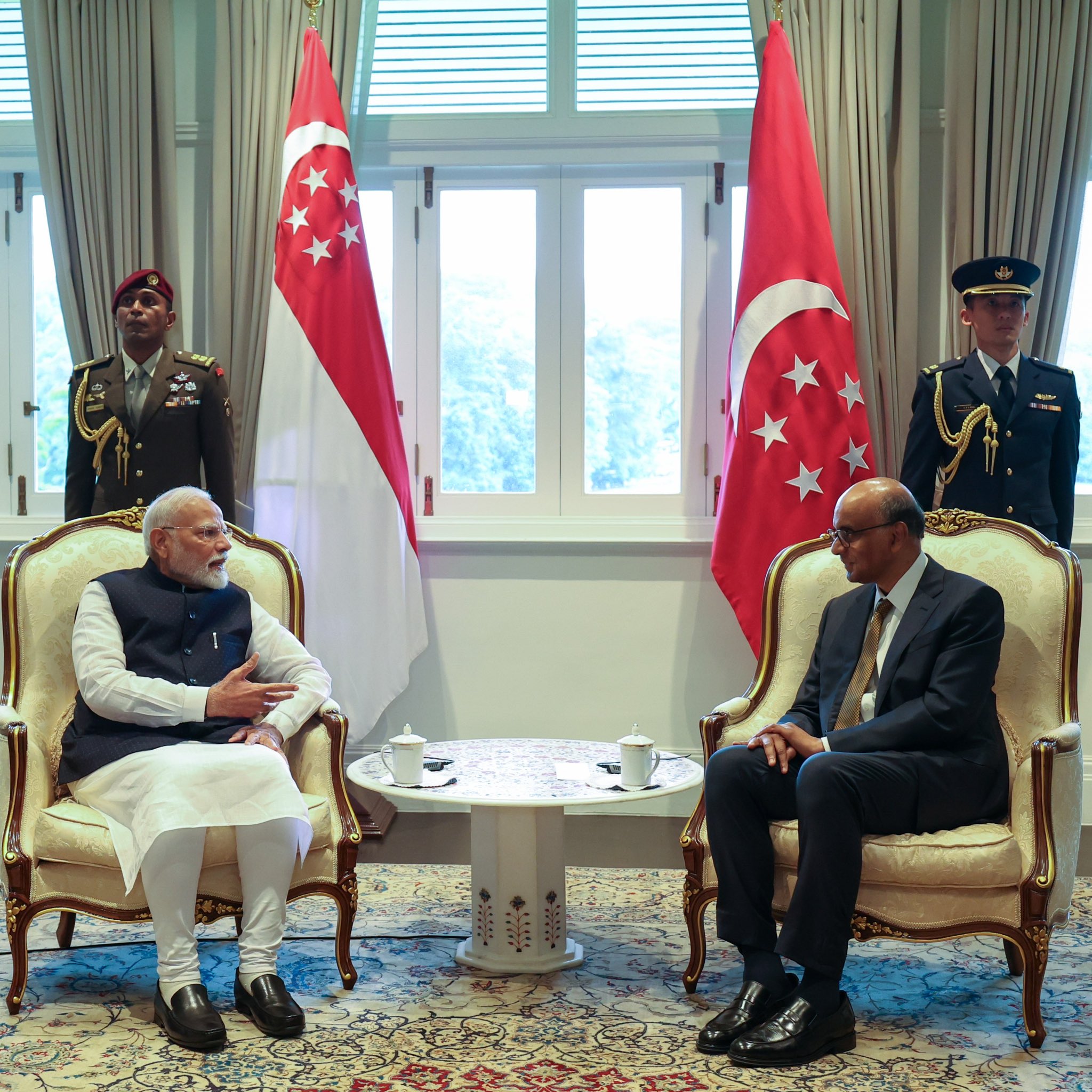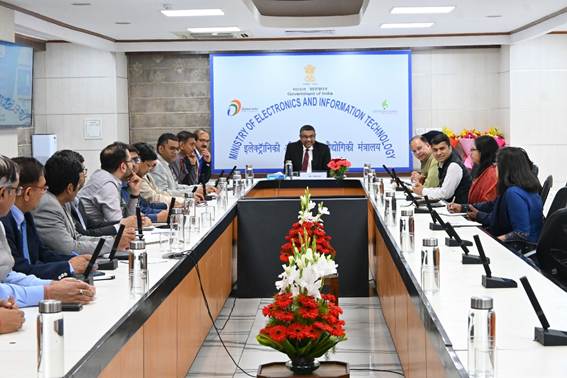Prime Minister Narendra Modi called on Singapore President Tharman Shanmugaratnam in Singapore, during his two-day visit to the island nation on Thursday and discussed avenues to broaden and deepen India-Singapore cooperation.
The two leaders warmly greeted each other and sat down and held discussions. PM Modi also signed the visitor’s book. Prime Minister Modi also thanked the Singapore President for his passionate support for the India-Singapore partnership.
“PM @narendramodi held fruitful talks with President @Tharman_Sin Singapore today. PM thanked President @Tharman_S for his passionate support for the India-Singapore partnership. Discussions focused on avenues to broaden and deepen India-Singapore cooperation,” Ministry of External Affairs spokesperson Randhir Jaiswal stated in a post on X.
The leaders discussed bilateral and global issues of mutual interest, noting the longstanding friendship and cooperation between the two countries based on trust, mutual respect, and complementarity. They explored potential collaborations in new areas such as advanced manufacturing and emerging technologies.
Earlier in the day, PM attended a lunch hosted by Singapore’s Senior Minister Lee Hsien Loong. Following the meeting, PM Modi said, “It is always gladdening to meet my friend and former PM of Singapore, Mr. Lee Hsien Loong. He has always been a strong votary of close India-Singapore ties.”
A key highlight of the visit was PM Modi’s tour of the semiconductor facility of AEM Holdings Ltd, accompanied by Singapore’s PM Lawrence Wong. During this visit, PM Modi invited Singapore’s semiconductor companies to participate in the upcoming SEMICON INDIA exhibition in Greater Noida.
The Prime Minister also interacted with interns from Odisha’s World Skill Center visiting Singapore and Singaporean interns who had visited India under the CII-Enterprise Singapore India Ready Talent Programme. “Such cooperation is indeed special and celebrates human talent as well as innovation,” PM Modi said.
Furthermore, India and Singapore elevated their bilateral relations to the level of Comprehensive Strategic Partnership. The two sides exchanged four Memorandums of Understanding (MoUs) in the areas of digital technology, semiconductors, skill development, and healthcare.
(Inputs from ANI)




















